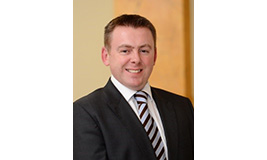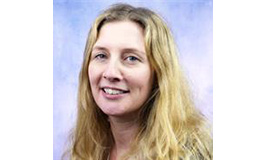Gene therapy for musculoskeletal applications Special Issue
The COVID-19 pandemic has shown how revolutionary treatments based on gene therapeutics have helped overcome a once-in-a-century pandemic and have given new momentum to gene therapy research for a myriad of applications. The field of regenerative medicine is well placed to be a beneficiary whereby, for example, gene therapy might be a valuable tool to avoid the limitations of local delivery of growth factors including short half-life, large dose requirement, high cost, need for repeated applications and poor distribution. In musculoskeletal applications, this might provide an opportunity to overcome some of the well-established problems with therapeutics, such as recombinant bone morphogenetic proteins. This special issue will include a series of articles focused on viral and non-viral gene therapy approaches for delivery of DNA and RNA therapeutics to repair musculoskeletal tissues including bone, cartilage, ligament, tendon, meniscus, intervertebral disk and peripheral nerve. Submissions focussed on gene-activated scaffolds which utilise biomaterials as delivery systems for nanomedicines for musculoskeletal applications are particularly encouraged.
Topics include but are not limited to: DNA and RNA based therapeutics for repair of musculoskeletal tissues, gene editing approaches to musculoskeletal repair, novel biomaterials for gene delivery, scaffold-based delivery of gene therapeutics, genetically modified cells for musculoskeletal repair.
Submission deadline: 31st of July 2023
All papers (invited and open submitted) undergo full peer review. All accepted manuscripts will follow the Article Processing Charge (APC) policy of eCM.
Publication: immediately upon acceptance
Editorial team
|
eCM Scientific Editor Prof. Fergal J O'Brien PhD, CEng, FEAMBES, FIEI, FIAE, MRIA |
Fergal O'Brien is Deputy Vice Chancellor for Research & Innovation, Professor of Bioengineering & Regenerative Medicine, Head of the Tissue Engineering Research Group in RCSI and Deputy Director of the Advanced Materials & Bioengineering Research Centre. He is a leading innovator in the development of advanced biomaterials for tissue repair with target applications in bone, cartilage, cardiovascular, corneal, respiratory and neural tissues. A major focus of ongoing research is to functionalise these scaffolds for use as delivery systems for biomolecules with a particular interest in the delivery of gene therapeutics to promote enhanced tissue repair. Since his faculty appointment, he has published over 300 journal articles, supervised over 50 doctoral students to completion and translated a number of regenerative technologies for bone and cartilage repair to the clinic through spin-out formation and licensing to industry. He is a recipient of 3 awards from the European Research Council (ERC) including an ongoing ERC Advanced Grant focussed on advanced biomaterials for joint repair and will receive the 2023 Marshall Urist, MD Award from the Orthopaedic Research Society for his musculoskeletal regeneration research.
|
|
|
eCM Guest Editor Dr Caroline Curtin PhD, PgDipEd, FAS |
Caroline Curtin obtained her BSc in Biomedical Science followed by her PhD (in the Regenerative Medicine Institute (REMEDI)) in 2010 from the University of Galway. She was then recruited as a post-doctoral researcher to the Tissue Engineering Research Group (TERG) in the Royal College of Surgeons in Ireland (RCSI, University of Medicine and Health Sciences), assessing smart scaffolds for bone tissue regeneration. Dr. Curtin is a Senior Lecturer in the Department of Anatomy and Regenerative Medicine and Principal Investigator in the TERG. Her research focuses on development of gene-activated scaffold systems for musculoskeletal applications with a particular focus on bone and cartilage, and utilising scaffolds as 3D tumour models for the development of novel cancer treatments with an emphasis on breast and prostate cancer. She has authored >30 peer-reviewed articles, >200 peer-reviewed conference abstracts and 4 peer-reviewed book chapters. She is on the editorial board of 2 journals and acts as reviewer for >20 journals and 3 funding agencies. Caroline has chaired/co-chaired >10 conferences and symposia at national and international conferences. She is also a member of numerous professional societies, a Fellow of the Anatomical Society and the current President of the Matrix Biology Ireland (MBI) Society.
|
|
|
eCM Guest Editor Prof. Cathal Kearney, PhD |
Dr Cathal Kearney is currently an Assistant Professor in the Department of Biomedical Engineering at UMass Amherst. He received his Ph.D. from Massachusetts Institute of Technology’s Harvard/MIT Division of Health Sciences and Technology programme and completed his postdoctoral training at Harvard University. Prior to joining UMass Amherst, Dr. Kearney was a Senior Lecturer in the Department of Anatomy and Regenerative Medicine in the Royal College of Surgeons in Ireland. His research team focuses on engineering tools to understand and mimic natural biological cue timing to enhance tissue repair and regeneration. They apply these technologies to deliver therapeutics at specific time-points and to probe the role of timing in repair processes. He has published over 40 research papers, and is a recipient of an ERC award, as well as an NIH MIRA award.
|
|
Published manuscripts
|
|



